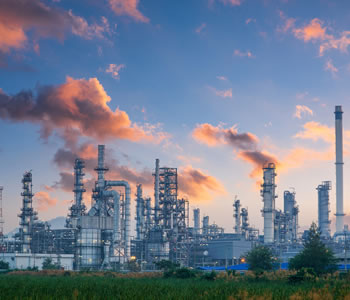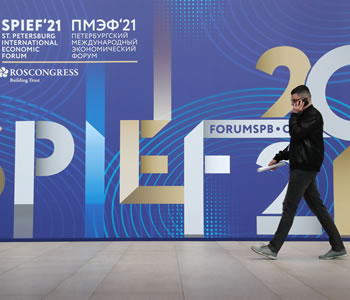Sailing the Green
Russian chemical and petrochemical companies introduce and scale-up their sustainable development initiatives.
St Petersburg International Economic Forum
SIBUR took part in the St Petersburg International Economic Forum.
New Reality of Management
Mikhail Karisalov spoke about the impact of the pandemic on SIBUR’s development.
Setting course for a green future
Alexey Kozlov, Member of the Management Board and Managing Director at SIBUR, spoke at the National Sustainable Development Forum.
Europlast launches FLAKES-TO-RESINE technology
Thanks to the new technology, Europlast will increase its output of granulate containing recycled materials.
Unique PVC profile from POLYPLASTIC
Russia’s first-ever production line launched for steel-reinforced PVC profile.
Solvent from Agrosintez
The company is launching an updated product for the paint and coatings industry.
Packaging for polymers: a new industry benchmark
The production of plastic pallets intended for ZapSibNeftekhim has been launched in Tobolsk.
PRO Bitumen & PBBs: recap and outlook
SIBUR and Gazprom Neft held the PRO Bitumen & PBBs cross-industry conference.
SIBUR develops new polymer grade: Sibex 3DF
SIBUR specialists have created a new polymer for use in fused deposition modelling (FDM).
SIBUR has launched the English version of eshop.sibur
SIBUR’s Digital Lab is helping to break into new markets.
SIBUR adopts compliance practices
SIBUR has developed a Counterparty Code of Business Conduct.
An interest in sustainability
SIBUR is the first company in the industry to get a sustainability-linked loan.
SIBUR BUSINESS PRACTICES: platform updated
In Q2 2021, personal accounts were launched on the platform; also, a personalised webinar calendar.
SIBUR brings together
The Company organized a field session with customers from more than 40 companies.
“Planet Earth. See You Tomorrow”
Channel One ran a premiere broadcast of a new documentary by Valdis Pelsh titled “Planet Earth. See You Tomorrow”.
SIBUR and TAIF are merging
The new consolidated company will become one of the top-five global producers of polyolefin and rubber products.
Vivilen – a new lease of a polymer life
SIBUR is launching Vivilen brand of products containing recycled waste.
Caring for the customer
SIBUR has launched a complimentary customer data analysis project based on its own digital platform.
Petrochemicals: numbers
Why oil is net positive, IPEX is in the catbird seat, and rubber prices are gaining momentum: find out in the new report by experts from SIBUR.
Polymers during the construction boom times
Market needs, promising technology and innovation in Russian manufacturing.
Special-Purpose Chemistry Trends
The global market of special-purpose chemistry curtailed by 3.5% last year. Its recovery is expected in 2021.
CIS Petrochemicals
The participants of the ninth annual CIS Petrochemicals conference discussed industry recovery post-pandemic.
Investments in petrochemicals
Petrochemical companies, SIBUR in particular, are in high demand for long-term investments.
“We believe in the market’s future growth”
We sat down with Sergey Kolesnikov, Co-owner and Managing Partner of TechnoNICOL.
Per aspera ad astra – Through hard work to victory
Interview with CEO of Conflex SPb Vladislav Yatsenko.
It is important to see shifts in demand
Interview with Tatiana Vladimirova, Commercial Director of PolyER.
Face up to problems
We sat down with Denis Eganov, Founder & CEO of Himtrust.
New polyethylene pipes
PK KONTUR is developing the production of cross-linked polyethylene (PEX-a) pipes.
Success is an elusive goal
Alexander Petrov, Member of the Management Board – Managing Director at SIBUR, spoke to us about life’s choices, success drivers and helping people.
Expert advice for exporters
Export Development as a Driver for Company Growth video conference was held on the SIBUR Business Practices platform.
Negotiations: lifehacks from the professionals
Management Workshop: The Art of Negotiations has taken place on the SIBUR Business Practices platform.
TOP MANAGERS TAKING QUESTIONS
In the Q&As section, our top managers answer the most interesting and relevant questions from our clients sent to dearcustomer@sibur.ru.






